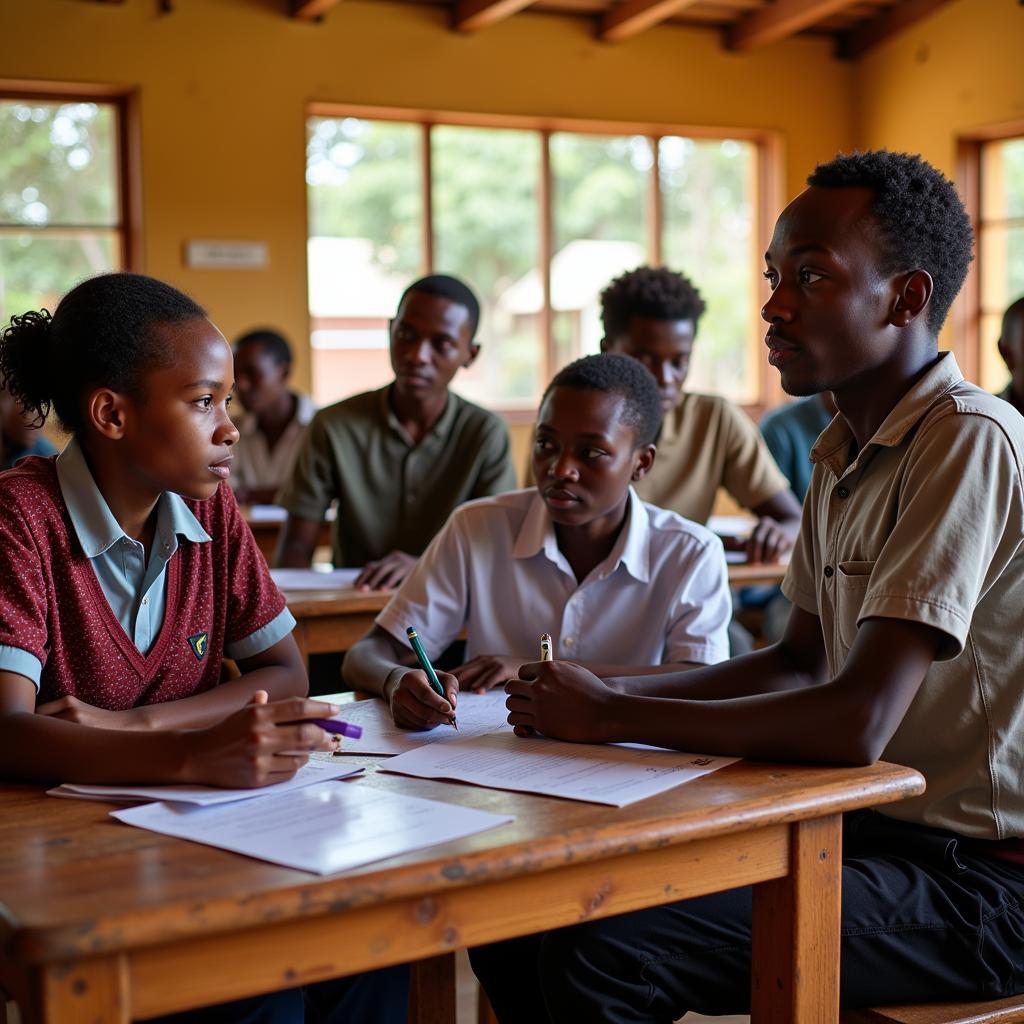African Field Epidemiology Network (AFENET) Kampala: Strengthening Public Health Capacity in Africa
The African Field Epidemiology Network (AFENET) Kampala plays a crucial role in strengthening public health capacity across the African continent. AFENET, headquartered in Kampala, Uganda, is a non-profit organization dedicated to training and supporting public health professionals in field epidemiology. This network works diligently to improve disease surveillance, outbreak response, and public health interventions.
Understanding the Importance of AFENET Kampala
AFENET Kampala’s work is vital in addressing the diverse public health challenges facing Africa. From infectious diseases like Ebola and COVID-19 to non-communicable diseases and health system strengthening, AFENET’s training programs equip professionals with the skills needed to effectively tackle these issues. Their focus on data-driven decision-making and practical field experience makes them a key player in improving health outcomes across the continent.
How AFENET Kampala Trains Future Public Health Leaders
AFENET’s flagship program, the two-year Field Epidemiology Training Program (FETP), provides rigorous training in applied epidemiology. Participants learn through a combination of classroom instruction, field investigations, and mentorship. The program emphasizes practical skills development, enabling graduates to conduct outbreak investigations, design surveillance systems, and analyze public health data. This hands-on approach is crucial for building a competent public health workforce.
Participants in the FETP gain experience investigating real-world public health problems. They learn how to collect and analyze data, interpret findings, and develop recommendations for action. The program’s emphasis on fieldwork ensures that graduates are prepared to address public health challenges in diverse settings.
AFENET Kampala’s Impact on Disease Surveillance and Outbreak Response
AFENET Kampala has significantly contributed to enhancing disease surveillance and outbreak response capabilities in Africa. By training field epidemiologists, AFENET helps countries establish robust surveillance systems that can detect and respond to outbreaks quickly. Their work is instrumental in preventing the spread of infectious diseases and mitigating their impact on communities.
The network’s quick response to outbreaks has saved countless lives. During the Ebola outbreak in West Africa, AFENET-trained epidemiologists were on the front lines, tracking the spread of the disease, identifying cases, and implementing control measures. Their expertise was critical in containing the outbreak and preventing a wider catastrophe.
Collaborative Partnerships: Expanding AFENET’s Reach
AFENET Kampala collaborates with various partners, including ministries of health, international organizations, and academic institutions, to maximize its impact. These partnerships enable AFENET to share expertise, leverage resources, and expand its training programs to reach more public health professionals across Africa.
Working with governments and local communities, AFENET ensures that its training programs are tailored to the specific needs of each country. This collaborative approach helps build sustainable public health capacity and strengthens local ownership of public health initiatives.
The Future of Public Health in Africa: AFENET’s Continued Role
AFENET Kampala continues to play a critical role in shaping the future of public health in Africa. By investing in training and capacity building, AFENET empowers public health professionals to address emerging health challenges and build more resilient health systems. Their dedication to fostering leadership and promoting data-driven decision-making is essential for improving health outcomes for all Africans.
Dr. Akinyi Ochieng, a leading epidemiologist at AFENET, emphasizes the importance of continuous learning and adaptation in the field of public health: “The challenges we face are constantly evolving. We must invest in training and professional development to ensure that our public health workforce is equipped to address these challenges effectively.”
Professor Joseph Okeibunor, a public health expert and consultant, adds, “AFENET’s focus on mentorship and practical skills development is crucial for building a strong public health workforce in Africa. Their programs are producing highly skilled epidemiologists who are making a real difference in their communities.”
In conclusion, the African Field Epidemiology Network (AFENET) Kampala is an essential force in strengthening public health capacity across Africa. Through its training programs, collaborative partnerships, and dedication to data-driven decision-making, AFENET is equipping public health professionals with the skills and knowledge they need to protect and improve the health of communities across the continent.
FAQ
- What is the main focus of AFENET Kampala? Strengthening public health capacity through field epidemiology training and support.
- What is the FETP? The Field Epidemiology Training Program, a two-year program offered by AFENET.
- Who are the partners of AFENET? Ministries of health, international organizations, and academic institutions.
- How does AFENET contribute to outbreak response? By training epidemiologists who can quickly detect and respond to outbreaks.
- What is the future role of AFENET? Continuing to build public health capacity and address emerging health challenges.
- What is the duration of the FETP program? Two years.
- Where is AFENET headquartered? Kampala, Uganda.
When you need assistance, please contact us at Phone Number: +255768904061, Email: [email protected] or visit us at Mbarali DC Mawindi, Kangaga, Tanzania. We have a 24/7 customer support team.



